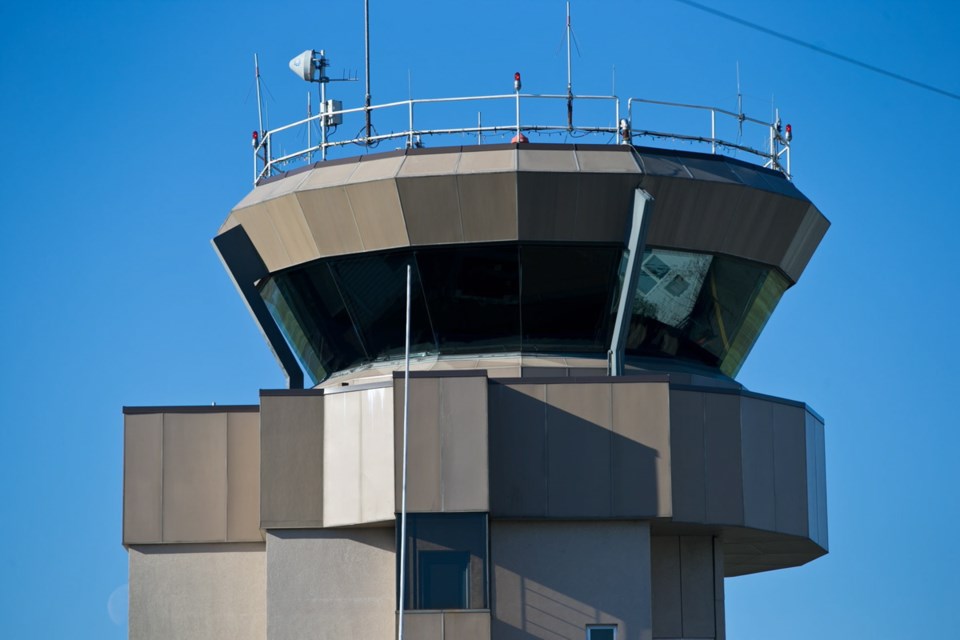B.C. needs to protect municipalities from potential revenue losses as Nav Canada appeals more than 100 airport property assessments with a value of $70 million throughout the province, says the NDP.
“It strikes fear into the heart of local government when you have a major property and it’s possible that you’ll get zero revenue from them,” said Selina Robinson, local government critic and MLA for Coquitlam-Maillardville.
Nav Canada’s decision to launch widespread appeals of its property assessments is worrying B.C. municipalities, which count on property taxes based on assessments to fund services.
A recent Supreme Court of B.C. decision upheld a drastically reduced assessed value of the Nav Canada property at Victoria International Airport in North Saanich. In that case, the valuation dropped to $20 from $1.4 million. Wiping out the assessment means the municipality of North Saanich, where the airport is located, will lose about $26,000 a year in property taxes. “It’s not realistic to say it is only worth $20,” Robinson said.
Nav Canada properties use local services, such as water and sewer, she added.
B.C. should be looking at how other provinces handle the issue, said Robinson.
Losing property-tax revenue means municipalities would have to choose whether to increase fees, shift more of the property-tax burden onto homeowners and businesses or cut services, she said.
Nav Canada is a non-profit organization running Canada’s civil air navigation system. Its properties include control towers.
At Victoria International Airport, the issue only affects Nav Canada property. The airport itself is operated by the Victoria Airport Authority, which last year paid $858,000 in property taxes to North Saanich and Sidney, with North Saanich receiving 99 per cent of the taxes paid, said Geoff Dickson, Airport Authority chief executive.
In Pitt Meadows, which was also part of the case that went to the Supreme Court, the Nav Canada property is assessed at $423,000, bringing in $5,000 in annual property taxes, said Mark Roberts, finance director for Pitt Meadows.
The province of B.C. and the Union of B.C. Municipalities are examining the impact of the court case.
Nav Canada has mounted appeals in areas including Prince George, Kitimat, Surrey, Oliver, Dawson Creek, Salmon Arm, Revelstoke, Surrey, Fort St. John and Haida Gwaii. The assessments of the 110 properties total about $70 million, according to B.C. Assessment Authority documents.
Nav Canada will not comment on its appeals.
Nav Canada’s 2013 annual report states that its capital assets are valued at $666 million for land, buildings, systems, equipment and property. Its intangible assets include $727 million for air-navigation rights, $152 million for purchased software, $145 million for internally developed software and $3 million in goodwill, the report said.
Alberta cities protected by legislation
Alberta municipalities are successfully fighting Nav Canada property-assessment appeals by using provincial legislation that permits them to force the civil air navigation agency to pay property taxes.
The Municipal Government Act in Alberta allows properties deemed exempt from taxes to be declared taxable, helping local governments gain revenue.
B.C. does not have such legislation, meaning municipalities in the province have no recourse if Nav Canada wins assessment appeals in court.
That’s what has happened with Nav Canada assessments at four B.C. airports, including Victoria International Airport.
The city of Calgary, home of Calgary International Airport, and nearby Rocky View County, with Springbank Airport, passed bylaws in 2012 to require Nav Canada to pay taxes.
Nav Canada’s properties at the Calgary airport are assessed at $7.19 million, and, based on that figure, deliver $101,454 in taxes to the city, municipal documents state.
At Rocky View, Nav Canada is currently paying taxes on $336,910 worth of property, said county spokesman Grant Kaiser.
“Preliminary assessments of the currently exempt land are roughly $4.5 million. Our bylaw removes that exemption in 2015, and the county and Nav Canada are working on a final assessment number and how the county will collect the tax revenue once that exemption expires,” Kaiser said.
In the County of Leduc, home to the Edmonton International Airport, the municipality was ready to implement a similar tax-back bylaw when Nav Canada agreed in 2011 to negotiate a formula to set an assessment rate. Nav Canada did not go ahead with an assessment appeal, said Bob Ballhorn, municipal assessment director.
The agreement between the County of Leduc and Nav Canada in 2011 bases assessment levels on the amount of air traffic Nav Canada moves through that area’s airspace, Ballhorn said, adding “we never lost revenue.”
Nav Canada had wanted to avoid large fluctuations in property taxes from year to year, and the agreement satisfies that, Ballhorn said. If air-traffic movement increases, the assessment will rise. If movements decrease, the rate will stay relatively flat, he said.
In the County of Leduc, Nav Canada properties have a total assessed value of $17.9 million and property taxes of $188,677.
Nav Canada, a non-profit private agency, has appealed property assessments in B.C. and other provinces.
In the case of Calgary, the Composite Assessment Review Board deemed Nav Canada’s properties at the airport to be exempt from taxation. Calgary then stepped in with its bylaw.
Calgary’s rationale is that Nav Canada’s activities are not purely charitable because its operations are paid for and oriented to commercial purposes.
Ross Mosher, Nav Canada senior real estate analyst, said in a 2012 letter to Calgary: “The characterization of Nav Canada as a commercialized entity for the benefit of the commercial airline industry is false.” The air-navigation system is for the benefit of the general public, he added.



